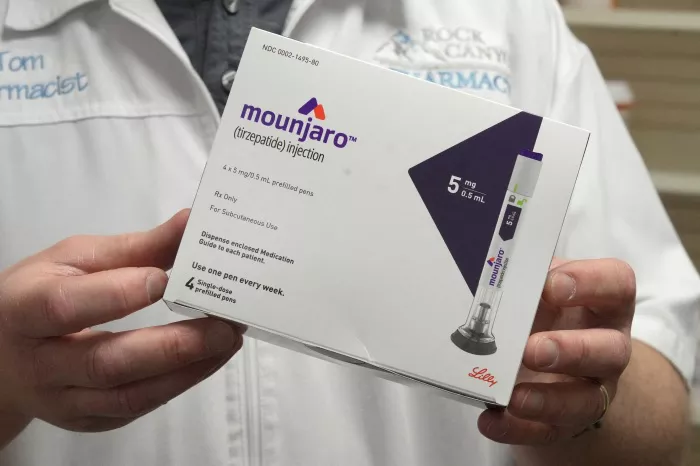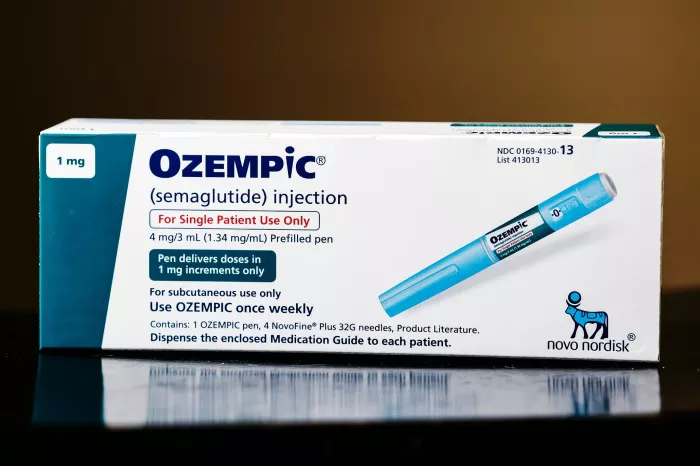Embarking on the journey of allergy testing is a pivotal step toward understanding and managing allergic reactions that may impact your well-being. Allergies can manifest in various forms, from seasonal sniffles to more severe reactions, and allergy testing serves as a diagnostic tool to identify specific triggers. This comprehensive guide aims to demystify the process of allergy testing, offering insights into what to expect, the types of tests available, and how this essential medical procedure can pave the way to a more informed and healthier life.
The Allergy Testing Landscape
Defining Allergy Testing: Allergy testing is a diagnostic procedure designed to pinpoint specific substances, known as allergens, that trigger allergic reactions in individuals. These reactions can manifest in various ways, ranging from sneezing, itching, and hives to more severe symptoms like difficulty breathing or anaphylaxis. The goal of allergy testing is to identify the allergens causing these reactions so that appropriate measures can be taken to manage or avoid exposure.
Types of Allergens Tested: Allergy testing can encompass a wide range of allergens, including but not limited to:
Environmental Allergens: Pollens, dust mites, mold spores, and pet dander.
Food Allergens: Common culprits like nuts, shellfish, dairy, and gluten-containing grains.
Insect Venom: Stings from bees, wasps, or fire ants.
Medications: Testing for allergic reactions to specific medications.
Latex: A common allergen found in rubber products.
Bold Steps into Allergy Testing
Consultation with an Allergist: Before diving into the intricacies of allergy testing, an initial consultation with an allergist is paramount. This session provides an opportunity for the allergist to gather a comprehensive medical history, discuss symptoms, and understand the specific triggers that may be causing discomfort. This collaboration sets the stage for a targeted and effective allergy testing approach.
Discussion of Symptoms: During the consultation, you can expect a thorough discussion about your allergy-related symptoms. Be prepared to articulate the frequency, severity, and duration of your reactions, as well as any patterns or triggers you’ve identified. This information is instrumental in guiding the allergist toward the most relevant tests for your specific case.
Types of Allergy Testing
Skin Prick Tests: One of the most common forms of allergy testing is the skin prick test. In this procedure, small amounts of suspected allergens are applied to the skin, usually on the forearm or back. The skin is then pricked with a tiny needle to introduce the allergens beneath the surface. If you are allergic to a particular substance, a small raised bump or hive will appear at the test site.
Intradermal Tests: Intradermal tests involve injecting a small amount of allergen just below the surface of the skin using a thin needle. This type of test is often employed when the skin prick test yields inconclusive results or when testing for specific allergens, such as insect venom or certain medications.
Patch Tests: Patch tests are utilized to identify contact allergens that may be causing skin reactions, such as dermatitis. Small amounts of potential allergens are applied to patches, which are then affixed to the skin for a specified period. The skin’s reaction is assessed after the patches are removed.
Blood Tests: Blood tests, including specific IgE (immunoglobulin E) tests, measure the levels of antibodies produced in response to allergens. These tests are particularly useful when skin testing is impractical or when a patient has a skin condition that may interfere with accurate results.
Oral Food Challenges: In cases of suspected food allergies, oral food challenges may be conducted under the supervision of medical professionals. Small amounts of the suspected allergen are ingested in a controlled environment to monitor for any adverse reactions.
Preparing for Allergy Testing
Medication Guidelines: Before undergoing allergy testing, it’s crucial to follow the allergist’s guidelines regarding medications. Certain antihistamines and other medications can interfere with test results, so your allergist may recommend discontinuing these medications for a specified period before testing.
Maintain Hydration: Staying well-hydrated is essential before allergy testing, especially for blood tests. Proper hydration helps ensure that blood can be drawn easily and that you remain comfortable throughout the process.
Comfortable Attire: Wearing loose-fitting and comfortable clothing to the testing appointment facilitates easy access to the areas where testing will be conducted. This consideration is particularly relevant for skin prick and intradermal tests.
The Testing Experience
Skin Prick Test Process: For skin prick tests, a grid is usually drawn on the skin, and small drops of allergens are applied to each marked area. The allergist or nurse then uses a tiny needle to prick the skin’s surface through the drops. The entire process is relatively quick, and the discomfort is minimal.
Intradermal Test Administration: Intradermal tests involve injecting a small amount of allergen just below the skin’s surface. This is typically done on the forearm. The skin is observed for any reactions, and the results are recorded.
Patch Test Application: Patch tests require the application of patches containing potential allergens to the skin. These patches are usually left on for around 48 hours, after which the allergist examines the skin for any signs of irritation or allergic reaction.
Blood Test Procedure: Blood tests involve the collection of a blood sample, usually from a vein in the arm. The sample is then sent to a laboratory for analysis. Blood tests are particularly suitable for individuals who cannot undergo skin testing due to certain medical conditions.
Post-Testing Observations
Immediate Reactions: Following skin prick or intradermal tests, you can expect immediate reactions at the test sites if you are allergic to any of the applied substances. These reactions typically manifest as small raised bumps or hives and confirm the presence of an allergy.
Delayed Reactions: Patch tests may yield delayed reactions that become apparent after the patches are removed. These reactions are assessed by the allergist, who examines the skin for signs of contact dermatitis or other allergic responses.
Blood Test Result Timeline: Blood test results may take a few days to a couple of weeks to be processed and analyzed. Once the results are available, your allergist will discuss the findings with you and formulate a comprehensive plan for managing your allergies.
Interpreting Results
Positive Results: A positive result from allergy testing indicates that you have reacted to a specific allergen. This means that exposure to that substance may trigger allergic symptoms. Positive results guide your allergist in developing a tailored treatment plan, which may include allergen avoidance strategies, medications, or immunotherapy.
Negative Results: Negative results, on the other hand, suggest that no allergic reaction was observed to the tested substances. While this information is valuable, it’s important to note that a negative result does not necessarily rule out allergies entirely. In some cases, further testing or observation may be required.
Crafting an Allergy Management Plan
Customized Treatment Approaches: Once allergy testing results are available, your allergist will work with you to craft a customized treatment plan. This plan may include:
Allergen Avoidance Strategies: Identifying and minimizing exposure to allergens.
Medication Management: Prescribing antihistamines, nasal sprays, or other medications to alleviate symptoms.
Immunotherapy Options: Recommending allergy shots or sublingual immunotherapy to desensitize the immune system to specific allergens.
Long-Term Management
Allergen Avoidance Strategies: Implementing allergen avoidance strategies is a key component of long-term allergy management. This may involve making adjustments to your environment, such as using allergen-proof bedding or avoiding certain foods.
Medication Compliance: Consistent adherence to prescribed medications is crucial for managing allergic symptoms. Whether it’s antihistamines, nasal corticosteroids, or other allergy medications, following your allergist’s recommendations ensures optimal symptom control.
Immunotherapy Commitment: For individuals pursuing immunotherapy, whether through allergy shots or sublingual tablets, commitment to the recommended schedule is essential. Immunotherapy aims to modify the immune system’s response to allergens over time, leading to a reduction in allergic reactions.
Follow-Up with Your Allergist: Regular follow-up appointments with your allergist allow for ongoing evaluation of your allergy management plan. These appointments provide an opportunity to address any changes in symptoms, discuss the effectiveness of treatment strategies, and make adjustments to the plan as needed.
Final Thoughts
In conclusion, the process of allergy testing is a vital step toward understanding and effectively managing allergic reactions. From the initial consultation to the testing procedures and the subsequent crafting of a personalized management plan, each stage plays a crucial role in empowering individuals to navigate the complexities of allergies. By collaborating with allergists, embracing tailored treatment approaches, and committing to long-term strategies, individuals can embark on a journey toward improved well-being and a life less burdened by the impact of allergies. May this guide serve as a beacon of clarity as you navigate the path to wellness, armed with the insights and knowledge needed to thrive in your allergy journey.
[inline_related_posts title=”You Might Be Interested In” title_align=”left” style=”list” number=”6″ align=”none” ids=”3418,3416,3420″ by=”categories” orderby=”rand” order=”DESC” hide_thumb=”no” thumb_right=”no” views=”no” date=”yes” grid_columns=”2″ post_type=”” tax=””]


































